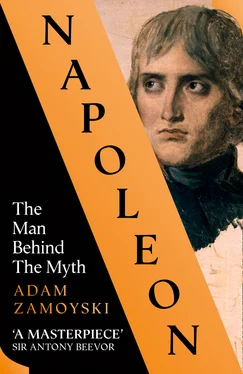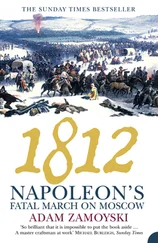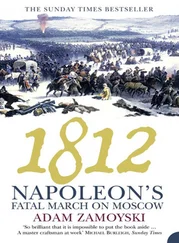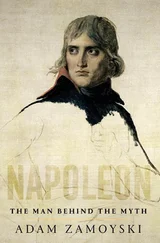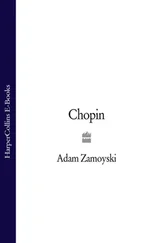Having heard no more from her, three days later he wrote that there was nothing left for him but to die: ‘All the serpents of the furies are in my heart, and already I am half dead,’ he wrote, still faintly hoping she might be on her way. ‘I hate Paris, women and love …’ he protested. ‘Farewell, my Josephine, to think of you made me happy, but everything has changed entirely,’ he went on, saying that he would never stop loving her. He had spent the night rereading all her letters and wallowing in self-pity. The same day he wrote to Barras: ‘I am in despair as my wife won’t come, she has some lover holding her back in Paris, I curse all women but heartily embrace my good friends.’ Writing three days later from Tortona, he apologised to Josephine for expressing himself with such feeling, but explained that he had been ‘drowning in sorrow’. He had just received a letter from Murat informing him that she was unwell, and although he assured him that it was only a slight indisposition, Bonaparte flew into a panic that she might die. ‘If you die, I will also die, of despair, of devastation,’ he wrote, asking her to intercede with Barras to obtain leave for him to return to Paris. He no longer cared for glory or the service of the motherland, and could not think of victory while she was ill. This long letter was followed the next day by another, even longer and more tortured, in which he blamed himself for having accused her of inconstancy. ‘My life is a continuous nightmare,’ he complained. ‘I am suffocated by a deadly presentiment. I no longer live; I have lost more than life, more than Happiness, more than tranquillity; I am almost without hope.’ He longed to be able to come to Paris. ‘I am nothing without you,’ he went on. ‘I can hardly imagine how I existed before I knew you.’24
Josephine found his letters, and the teenage frenzy they expressed, ridiculous and embarrassing. She amused her friends by reading them out, and after sharing one particularly self-dramatising passage in which he referred to Othello, she exclaimed, ‘He is funny, Bonaparte!’ But, no doubt fed up with continual enquiries as to her health and afraid that Bonaparte might indeed turn up in Paris, where he was not wanted, Barras persuaded her to go. According to some accounts he bundled her into the carriage himself, along with her dog, her maid, Hippolyte Charles and Junot. She was followed by several men of business to whom she owed money, and to whom she promised to obtain lucrative contracts supplying the army.25
Their journey was a regal progress, every city along the way wishing to honour the wife of the national hero. At Lyon she went to a special performance of Gluck’s Iphigénie en Aulide . At Turin, where she found Marmont waiting to escort her on her onward journey, she was treated like visiting royalty by the king. Her entry into Milan on 13 July was triumphal. She was settled in the magnificent Serbelloni Palace with its pink marble columns, and showered with honours by the city authorities. Bonaparte was in such transports of joy to see her that, as she informed Thérèse Tallien, she thought he would go mad. He could not keep his hands off her, and seemed unaware of the presence of Hippolyte Charles, whose role almost everyone else had guessed.26
Two days after her arrival, on 15 July, Bonaparte had to rejoin his troops besieging Mantua, which was sheltering some 12,000 Austrians. Josephine remained in Milan, where she was bored, despite the receptions and entertainments laid on for her, particularly when Lieutenant Charles could no longer delay taking up his duties at the side of General Leclerc in Verona.
Bonaparte, who still suspected nothing, was in ecstasy. ‘What nights, my love, were those I spent in your arms!’ he wrote. ‘In my memory I ceaselessly relive everything we did, your kisses, your tears, your sweet jealousy, and the charms of the incomparable Josephine keep stoking an ardent and burning flame in my heart and in my senses. […] A few days ago I thought I loved you, but, since seeing you I feel that I love you a thousand times more.’27
That night he hoped to storm Mantua with a surprise attack from the lake, but the waters unexpectedly went down and the attempt failed. He was already planning another trick that might deliver him the fortress, but this did not prevent him from thinking of Josephine. The next evening he was walking by the lake by ‘silvery moonlight’ in the village outside Mantua where Virgil was born, ‘not one hour without thinking of my Josephine’. He was by now aware of the gossip about Lieutenant Charles, and had stumbled on evidence when he opened letters to Josephine from Barras and Thérèse Tallien. He playfully cursed her while professing his faith in her fidelity and her love for him. ‘Far from you, the nights are long, dull and sad, close to you one wishes it could always be night,’ he wrote, inviting her to join him at Brescia.28
She arrived on 26 July, meaning to go on to Verona to see Lieutenant Charles under the pretext of sightseeing, but soon after she set off she ran into enemy troops. Bonaparte sent Junot with a squadron of dragoons to escort her back; on the way they came under fire, and she had to leave her carriage and take cover in a ditch. He resolved to send her out of the war zone on a trip to Tuscany. At Parma she met Joseph Fesch, who was busily putting together an art collection by requisitioning anything that caught his eye. In Florence she was received by the grand duke. Bored by Florence, she went back to Brescia and, Bonaparte being absent, summoned Lieutenant Charles to share his quarters with her.
Bonaparte was desperate to take Mantua, whose garrison remained a threat, making vigorous sorties which prevented him from securing the area. Although he had concluded treaties with Naples, the papacy and various smaller states of the peninsula, treaties were regularly broken, and a landing by British or Russian troops in Naples or elsewhere remained a possibility. If one were to take place when his back was turned, these states might be tempted to throw their considerable forces into the fray against him. And by the end of July it was clear that Austria was about to make a concerted effort to relieve Mantua and reconquer Lombardy.
Beaulieu had been replaced by the no less aged Field Marshal Dagobert von Würmser. He divided his army into three columns which moved out in July 1796. One, consisting of 18,000 men under General Quasdanovitch, marched down the western side of Lake Garda, aiming to take Brescia and cut Bonaparte off from Milan. Another, of 5,000 men under General Meszaros, came down the valley of the Brenta further east in order to distract the French, while Würmser himself with 24,000 marched down the eastern side of Lake Garda aiming for Verona, where it was planned that the three forces were to come together to defeat the French and relieve Mantua.1
Bonaparte, who had just under 40,000 men in total, would be overwhelmed unless he defeated the Austrian columns separately. He took a bold decision, ordering Sérurier to abandon the siege of Mantua and pulling all his forces out of Würmser’s path. Although this would allow the Austrian to relieve Mantua and add its garrison to his force, it gave Bonaparte the opportunity to concentrate enough men to rout Quasdanovitch, which he did at Lonato on 3 August, before turning about to face Würmser with a slight numerical superiority, at Castiglione on 5 August. In a classic manoeuvre, he encouraged Würmser to turn his right flank, then launched a powerful attack on his exposed centre which cut the Austrian army in two, forcing it into a disorderly retreat back to whence it had come. ‘There you have another campaign finished in five days,’ Bonaparte rounded off his report to the Directory, in which he grossly exaggerated the enemy’s losses.2
Читать дальше
